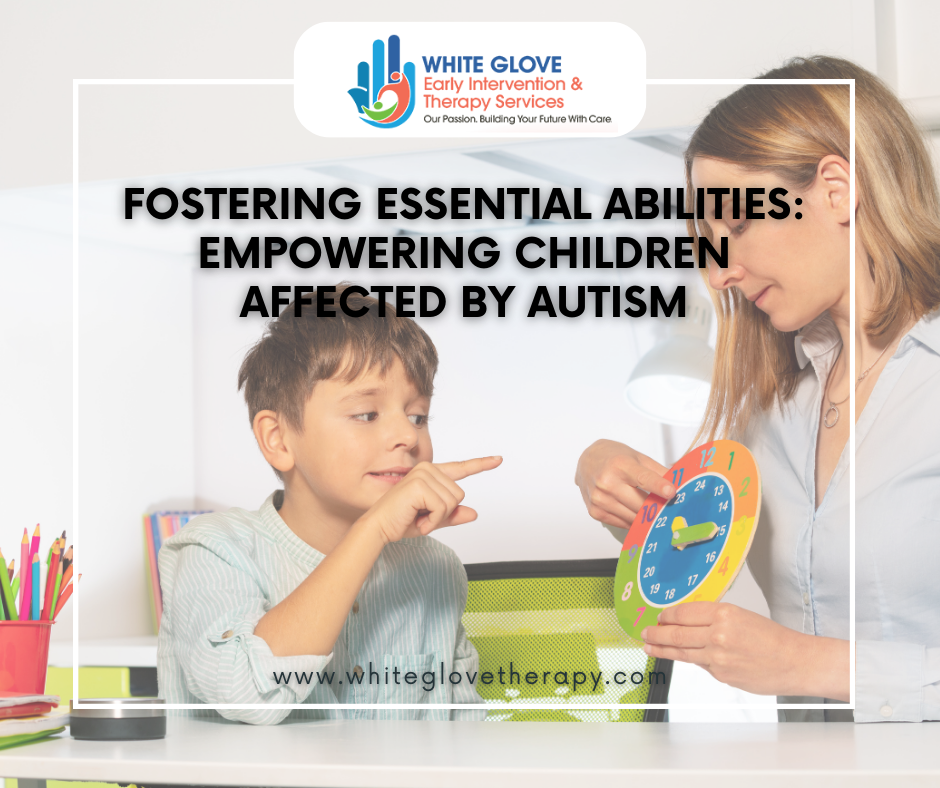Fostering Essential Abilities: Empowering Children Affected by Autism
Children with autism spectrum disorder (ASD) often face unique challenges in developing essential life skills. Nurturing these skills is crucial for their overall well-being and future independence. As caregivers and educators, it is our responsibility to create an inclusive environment that empowers children with autism to thrive. In this blog, we will explore the importance of nurturing life skills and strategies to empower children with autism on their journey to independence.
Understanding Autism Spectrum Disorder
Autism spectrum disorder is a neurodevelopmental condition characterized by differences in social communication, repetitive behaviors, and restricted interests. Individuals with autism may face difficulties in adapting to changes, forming relationships, and expressing themselves effectively. Recognizing these challenges is the first step towards creating a supportive environment that focuses on building life skills.
The Importance of Life Skills for Children with Autism
Life skills encompass a broad range of abilities that are essential for daily living. For children with autism, acquiring these skills can significantly enhance their quality of life and increase their independence. These skills include self-care routines, communication, social interactions, problem-solving, and emotional regulation. Nurturing these abilities not only aids in day-to-day activities but also prepares them for a more independent future.

Strategies for Nurturing Life Skills
Individualized Approach: Each child with autism is unique, with varying strengths and challenges. Tailoring interventions and strategies to meet individual needs is crucial. Understanding their preferences, sensitivities, and learning styles helps in creating an environment that supports their growth.
Structured Routine: Children with autism often thrive in structured environments. Establishing a consistent routine helps them anticipate and understand daily activities, fostering a sense of security. Visual schedules and clear routines can aid in this process.
Social Skills Development: Social interactions can be challenging for children with autism. Implementing social skills training programs, incorporating peer interactions, and using visual aids can enhance their ability to navigate social situations more effectively.
Sensory-Friendly Spaces: Many individuals with autism may be sensitive to sensory stimuli. Creating sensory-friendly environments, with consideration for lighting, noise levels, and textures, can help reduce sensory challenges and create a more comfortable learning space.
Task Breakdown and Visual Supports: Breaking down complex tasks into smaller, manageable steps and providing visual supports, such as visual schedules, can assist children with autism in understanding and completing tasks independently.
Collaboration with Professionals: Working closely with speech therapists, occupational therapists, and behavioral specialists can provide additional support and expertise. Collaborative efforts ensure a holistic approach to nurturing life skills.
Encouraging Independence: Gradually encouraging and reinforcing independent behaviors is essential. Celebrating small achievements and providing positive reinforcement motivate children to continue developing their skills.
Empowering children with autism through the nurturing of life skills is a vital aspect of their overall development. As caregivers, educators, and community members, it is our collective responsibility to create inclusive environments that facilitate growth, independence, and a sense of belonging for children with autism. By implementing individualized strategies, understanding their unique needs, and fostering a supportive community, we can empower these children to navigate the world with confidence and contribute meaningfully to society.


